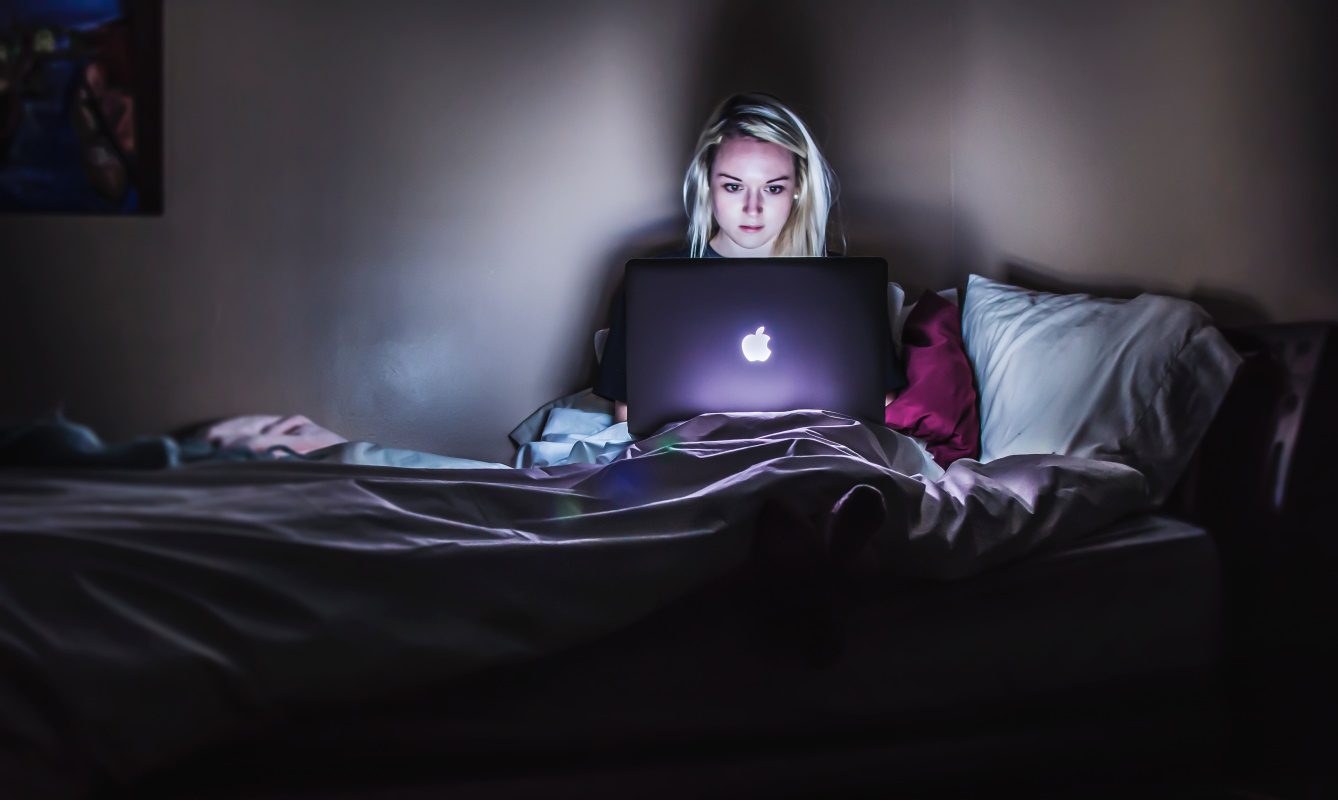As our time in front of screens has increased, the negative effects of blue light have, well, come to light.
On the visible spectrum, each color light wave has a different energy and wavelength. Red light waves are shorter and have less energy, while blue light has the same short waves but more energy. Lights that look white such as the glow from a computer have a large blue component.
While blue light occurs naturally from the sun and has many benefits during the day like boosting alertness, improving cognitive function, and elevating mood, artificial blue light has been proven to cause harm.
Artificial blue light from electronics has been the subject of many recent studies. Charles Czeisler, PhD, MD, chief of the Division of Sleep and Circadian Disorders at Brigham and Women’s Hospital in Boston is one of those researchers. Czeisler says, “the more research we do, the more evidence we have that excess artificial light at night can have a profound, deleterious effect on many aspects of human health. It is a growing public health concern.”
The most devastating effects of artificial blue light is the impact on circadian rhythms, or our body clocks. Access exposure to blue light decreases the production of melatonin, the hormone that lets us know we’re drowsy. Instead, blue light causes the body to release cortisol, the hormone that helps us wake up and increases hunger. When our body sees light in the evening, it thinks it is time to wake up. This is why staring at the computer before bed causes poor sleep and increasing the time it takes you to fall asleep.
One study on blue light found that participants to read from an e-reader at night saw their nighttime melatonin levels drop by 55% after 5 days, took longer to fall asleep, had less restorative rapid eye movement (REM) sleep than those who read a paper book.
Studies also show that exposure to blue light during meals can cause insulin resistance.
Along with decreased sleep quality, increased exposure to blue light can cause:
- eye strain
- blurry vision
- depression and other mental health issues
- retina damage
- impaired memory
If you’re noticing any of those symptoms along with decreased sleep quality, here are a few ways to decrease your exposure to blue light:
- avoid screens two-three hours before bed
- wear blue light blocking glasses, especially if you work at night
- keep blue light exposure to daylight hours

